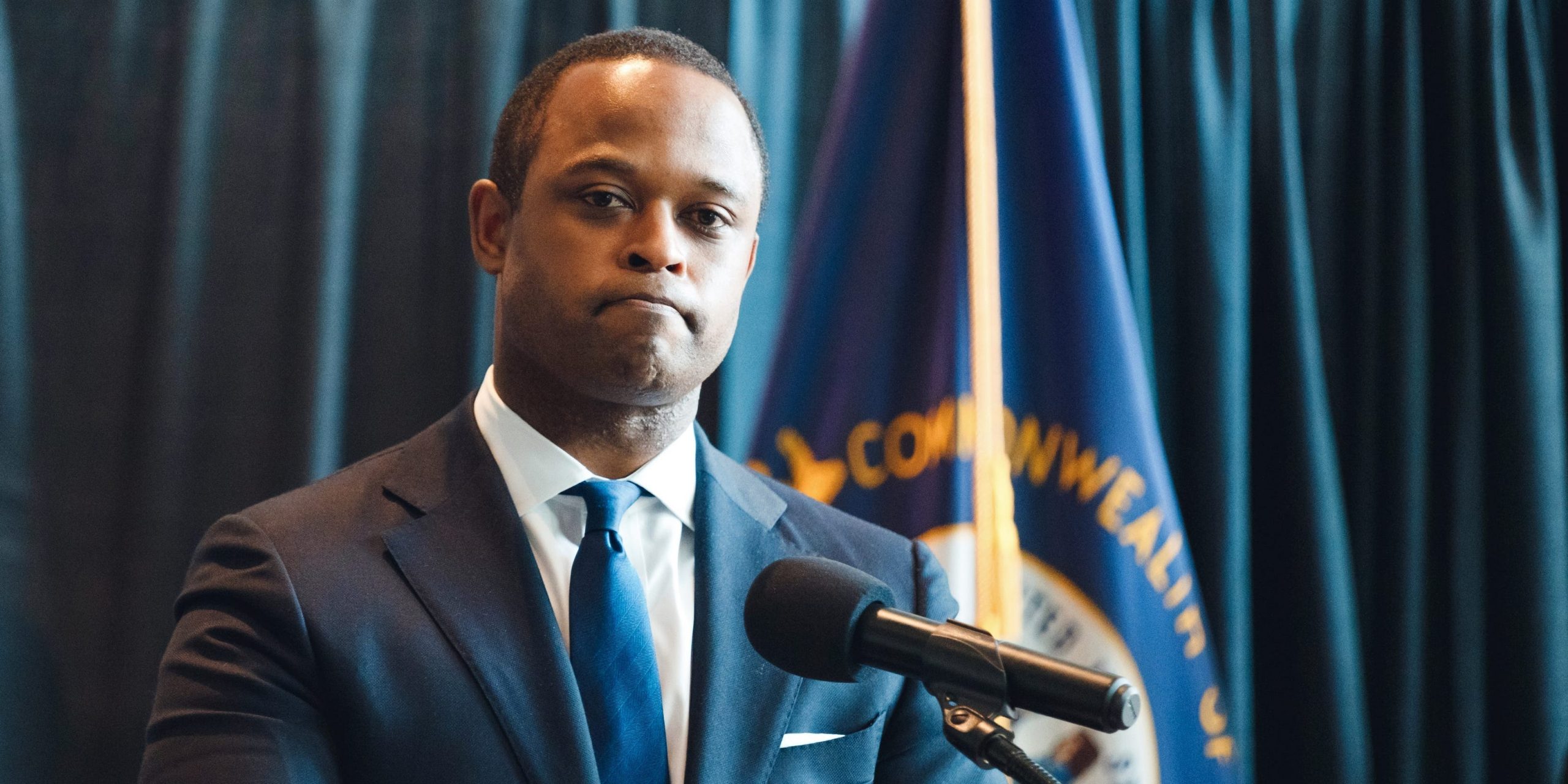
Jon Cherry/Getty Images
- The Supreme Court seemed willing to allow Kentucky's attorney general to defend an abortion law.
- The abortion law in question has already been struck down as unconstitutional by lower courts.
- Kentucky argued that its attorney general should still be able to defend the case.
The Supreme Court on Tuesday appeared willing to allow Kentucky's attorney general to defend an abortion law that's already been struck down as unconstitutional by lower courts.
The justices heard arguments on a technical question of whether GOP Kentucky Attorney General Daniel Cameron should be allowed to step in and defend the case after it had been dropped by Democratic Gov. Andy Beshear.
The court won't consider the substance of the law, which passed in 2018 under then-Republican Gov. Matt Bevin, and has since been blocked by lower federal courts. The law, known as HB 454, bans a standard abortion procedure called dilation and evacuation that is most commonly used to end a pregnancy after 15 weeks.
A Louisville clinic, EMW Women's Surgical Center, immediately challenged the statute, arguing that it poses an undue burden on the right to an abortion. A federal district judge in 2019 agreed and struck the law down, saying it presented a "substantial obstacle" to abortion rights and violated Supreme Court precedent.
The Bevin administration appealed, but the 6th U.S. Circuit Court of Appeals upheld the lower court ruling, affirming that the law was unconstitutional. In the meantime, an election took place and Bevin was replaced by Democratic Gov. Andy Beshear, who decided to drop the case without further appeal.
Yet newly elected Attorney General Cameron, a Republican, wanted to continue to defend the law. The 6th Circuit declined his request to intervene, saying it was too late. So Cameron turned to the Supreme Court, asking the justices to review whether he should be allowed to take over and defend the law.
On Tuesday, Kentucky's principal deputy solicitor general, Matthew Kuhn, argued that position.
"What we as Kentuckians want is a fail-safe," Kuhn told the court. "If a state official who enforces state law says, 'I'm not going to appeal any further,' Kentucky's attorney general can come in for the commonwealth and say: 'No, the commonwealth wants to go farther.'"
The justices seemed open to that argument.
Chief Justice John Roberts said once the Democratic administration pulled out of the legal battle, Kentucky "maybe ought to be there in some form, and the attorney general is the one that wants to intervene."
Justice Stephen Breyer raised a similar suggestion in his questioning. "There have been a lot of party changes. First the Republicans are in, then the Democrats are in, and they have different views on an abortion statute," he said. "We have an attorney general who think it's a pretty good statute. He wants to defend it."
"Why can't he just come in and defend the law?" Breyer asked the lawyer defending EMW Women's Surgical Center, Alexa Kolbi-Molinas of the American Civil Liberties Union.
Kolbi-Molinas argued that the attorney general is bound by the lower courts' judgment.
"The attorney general, it is well-settled in this court, stands in the shoes of his predecessors," she said. "It doesn't matter that there's been a political party change."
The Supreme Court will hand down its decision on the case, Cameron v. EMW Women's Surgical Center, by the end of next June.
"If we ultimately prevail, the court will be saying without question that a state has a right to defend itself with the official or representative of its choosing," Cameron said at a news conference in Kentucky last week.
Although the justices are not reviewing the merits of the law, abortion-rights supporters fear that if they do side with Cameron, abortion access could be threatened in Kentucky.
Abortion access is also at risk nationwide because of a separate upcoming case that could upend the 1973 landmark Supreme Court decision Roe v. Wade, which legalized abortion. On December 1, the justices will hear arguments on that case, Dobbs v. Jackson Women's Health Organization, which concerns a 2018 Mississippi law that bans nearly all abortions after 15 weeks of pregnancy.
Several states, including Kentucky, have so-called trigger laws that would take effect and ban all or nearly all abortions if Roe is overturned.

